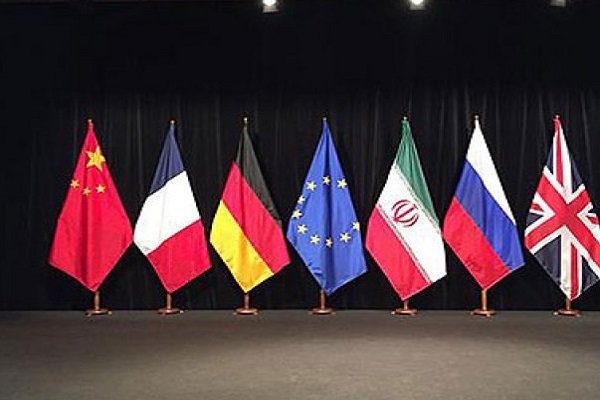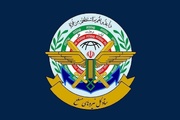The new year is on and impracticality and inaccessibility of the much pledged remedial care has turned maintaining the JCPOA to an onerous undertaking, writes Iran's ambassador to the EU, Peiman Seadat for Euronews. Here his take of the current state of play:
1. Following President Trump's unlawful withdrawal from the Joint Comprehensive Plan of Action (JCPOA), the Iran nuclear deal, on 8 May 2018, Iran was urged bilaterally by the European leaders to stay with the deal in return for compensation. A week later, EU/E3 and Iran met at the ministerial level, the conclusions of which were summed up by the EU High Representative, under 9 areas, "with a view to arriving at practical solutions in the next few weeks." The list included, inter alia, maintaining and deepening economic relations with Iran; the continued sale of Iran's oil and gas; effective banking transactions with Iran; and the further provision of export credit and development of special purpose vehicles in financial banking, insurance and trade areas. She, additionally, cited a decision to work on complementary mechanisms and measures at the EU and national levels to protect European economic operators.
2. Subsequent to updating the Blocking Statue and renewal of the mandate of the European Investment Bank (EIB) on Iran, Special Purpose Vehicle (SPV), an entity intended to avert reimposed US sanctions by making it possible for companies to trade with Iran, was placed at the heart of Europe's pledge. Following the Foreign Affairs Council on 10 December 2018, the High Representative, noted the joint work by the E3 [France, Germany, United Kingdom] on the establishment of the SPV, and said "I would expect this instrument to be established in the coming weeks, so before the end of the year, as a way to protect and promote legitimate business with Iran." While practicability of Blocking Statue or EIB's mandate is under serious doubt, the much-pledged SVP has not arrived either.
3. In sharp contrast, less than a month ago, the International Atomic Energy Agency (IAEA) confirmed for the 13th time Iran's full adherence to its share of the JCPOA, no infringements, no breach, whatsoever. Is full compliance an easy task? On technical grounds that unequivocally cannot be the case. Politically, yet, it has become an increasingly tall order for the government of President Rohani. Not only the dynamic political groups but currently many Iranians, find sticking one-sidedly to a deal that has failed to produce the committed economic dividends, unjustified. Iranians now live under the most savage but unlawful economic and psychological pressure waged by the US. They consequently wonder, once European entities, private and public, by submitting to the violator, refuse to work with Iran, would it be wise to endure an unfulfilled deal only for a marginal price of political statements by Europe in its favour, as strong and recurrent as they might be? Iran has been the compliant, not the violator, yet, under this faulty equation, the violator wins and the compliant loses.
4. To Europe, JCPOA is of strategic importance. Strategic for Europe's security, and strategic for its non-proliferation prominence. More than anybody else, however, Iran continues to believe in the indisputable capacity of the JCPOA as a platform, upon which viable bilateral relations, as well as peace and stability in the region and beyond, can be constituted and promoted. After all, JCPOA is the only successful diplomatic solution to a crisis in a highly troubled region, notwithstanding Iran’s belief that the crisis was unnecessary in the first place. The question is, however, how prepared Europe is to invest in its own strategic interests? As Iran’s Minister of Foreign Affairs Mohammad Zarif put it, you can't swim without getting wet. That precisely translates into a necessity of action and not solely an expression of words to save the JCPOA.
5. The leadership in Iran, faced with the US withdrawal from the JCPOA, reimposition of the US hefty economic sanctions, continued Israeli and Saudi intrigues, and Europe's tardiness has reacted patiently and responsibly. In fact, arch-enemies of the JCPOA, hoped Iran to withdraw from the deal, so that they could convene a united front against the country. The Iranian leadership has denied them of such a luxury so far, by exercising maximum maturity, statesmanship and perseverance, exceptional features to the region. Yet, Iran's restraint is founded on its national interests. If, and this is key to the whole scenario, with or without the deal, the predicament is the same for Iran, then it logically becomes quite probable for the leadership to think twice. Undoubtedly, the price Iran pays right now does not support its restraint. It would be, therefore, totally wrong and even risky to misinterpret Iran's patience and to conclude that, Iran, at any price, remains with the deal. This situation makes Iran consider all viable and carefully considered options. In fact, the leadership has already instructed preparations for the eventuality of things go amiss.
6. Iran's full adherence to the JCPOA so far, against all hurdles and provocations, should have already produced adequate trust. Iran is attentive of geopolitical interests of Europe within the context of its transatlantic relations and the region. Iran expects Europe, however, to understand its legitimate security concerns, in particular, the region. Criminal warmongers of state or non-state character are still around in a region of high volatility. The bitter experience of Saddam Hussein has taught Iran indelible lessons. There are certainly areas of agreement and disagreement between Iran and Europe. Nevertheless, JCPOA for both Iran and Europe provides a platform for engagement and dialogue in those areas. The JCPOA, even under its current shape, has induced Iran/E4/EU to engage in four rounds of fruitful regional dialogue on Yemen, quite assistive to the ongoing Yemeni peace talks. That can expand to other regional issues, the possibility for which is pending on saving the JCPOA in the first place.
JCPOA, per se, was a win-win achievement and that includes its implementation phase. It, however, cannot turn into a gain for the violator, to the disadvantage of the compliant. The current situation of uncertainty is becoming perilous. The merit of Europeans solely sticking to policy announcements is overdue. Hawks in Washington, simply do not care about Europe's expression of political dismay over the US's ill-intended policies. Europe's inaction has a price. It will only cause losing Iran's patience and trust. My worry is that things might move towards hanging by a thread.
KI/PR


























Your Comment